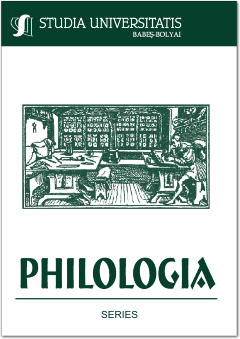REFLECTIONS ON THE CONCEPT OF LINGUISTIC IMAGINARY
REFLECTIONS ON THE CONCEPT OF LINGUISTIC IMAGINARY
Author(s): Elena PlatonSubject(s): Language studies, Language and Literature Studies, Foreign languages learning, Theoretical Linguistics, Applied Linguistics, Studies of Literature, Philology, Translation Studies, Theory of Literature
Published by: Studia Universitatis Babes-Bolyai
Keywords: cultural imaginary; linguistic imaginary; metalinguistics; subjective norms; objective norms; ethnolinguistics; linguistic representation of the world; linguistic stereotype; cognitivism;
Summary/Abstract: Reflections on the Concept of Linguistic Imaginary. Our reflections on the concept of linguistic imaginary (LIM) have been triggered by the question whether or not the metalinguistic perspective initially granted to LIM – according to which LIM matches the speaking subject’s representations on the language ‒ may represent a rather restrictive comprehension formula, thus limiting the operational potential of a concept otherwise capable of covering a larger area of research. Therefore, in addition to presenting the ‘classical’ perspective on LIM, quite well-known and exploited in certain linguistic circles in Romania, we will provide a further latent perspective, as suggested by ethnolinguistics and cognitive linguistics. Our present approach aims to exploit the potentiality of such a generous and prolific concept, able to include, from our point of view, the speakers’ world-representations (which obviously include the language-representations as well), encoded in and by the language facts. From such a perspective, the language would be both the object of representation and its essential vector, LIM being part of the cultural imaginary which is expressed in concrete linguistic data at various language levels, mostly at lexical level. As a result, the concept of LIM would significantly expand and become more flexible, thus generating some new, dynamic interdisciplinary research fields.
Journal: Studia Universitatis Babes-Bolyai - Philologia
- Issue Year: 64/2019
- Issue No: 3
- Page Range: 109-122
- Page Count: 14
- Language: English

